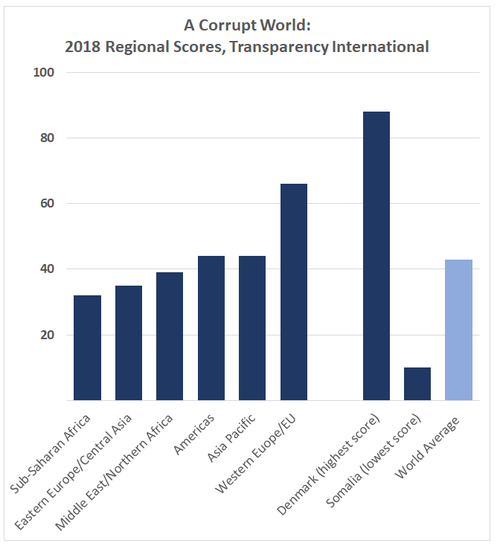Mainstreaming of Corruption: Project Syndicate
Mainstreaming of Corruption: Project Syndicate
Read the article from Project Syndicate about the corruption of populism.
Sławomir Sierakowski, founder of the Krytyka Polityczna movement, is director of the Institute for Advanced Study in Warsaw and Senior Fellow at the German Council on Foreign Relations.
Read about corruption from Transparency International: “Corruption chips away at democracy to produce a vicious cycle, where corruption undermines democratic institutions and, in turn, weak institutions are less able to control corruption,” explains Patricia Moreira, the organization’s managing director.
The report references a finding from the Tony Blair Institute for Global Change that 40 percent of populist leaders are indicted on corruption charges.

(Source: Transparency International)